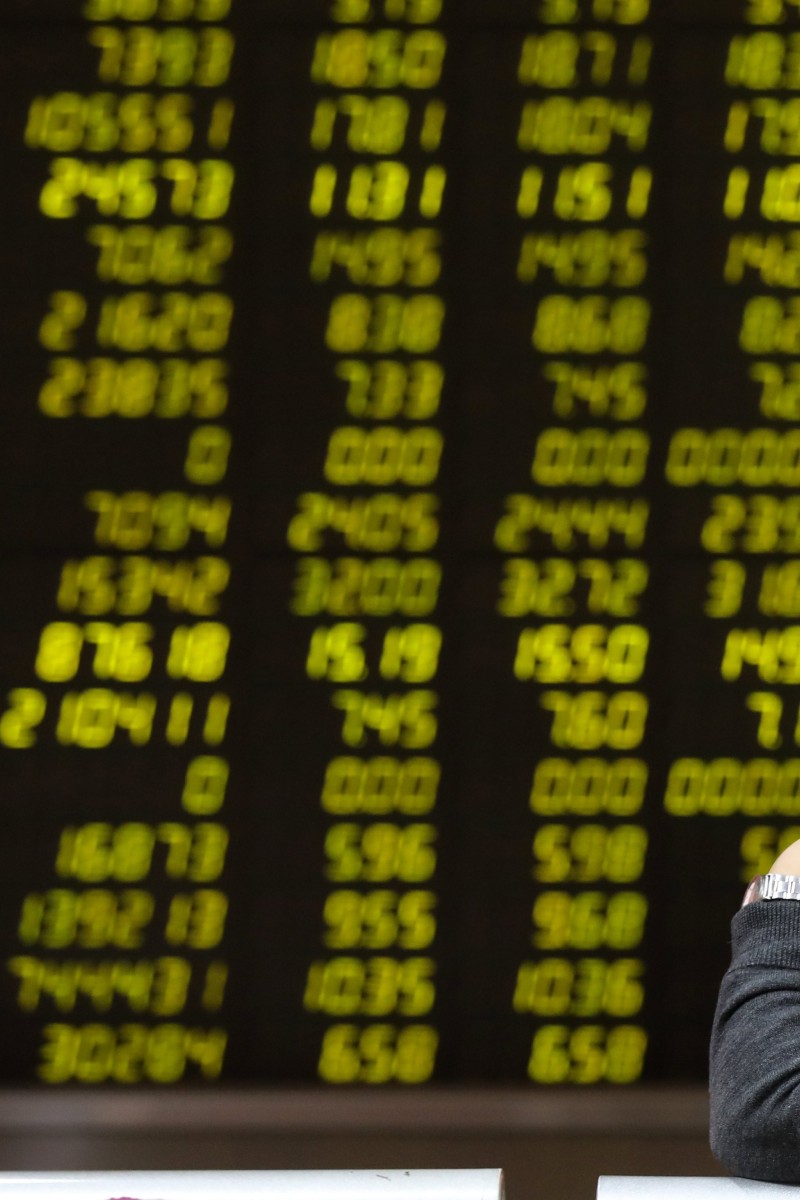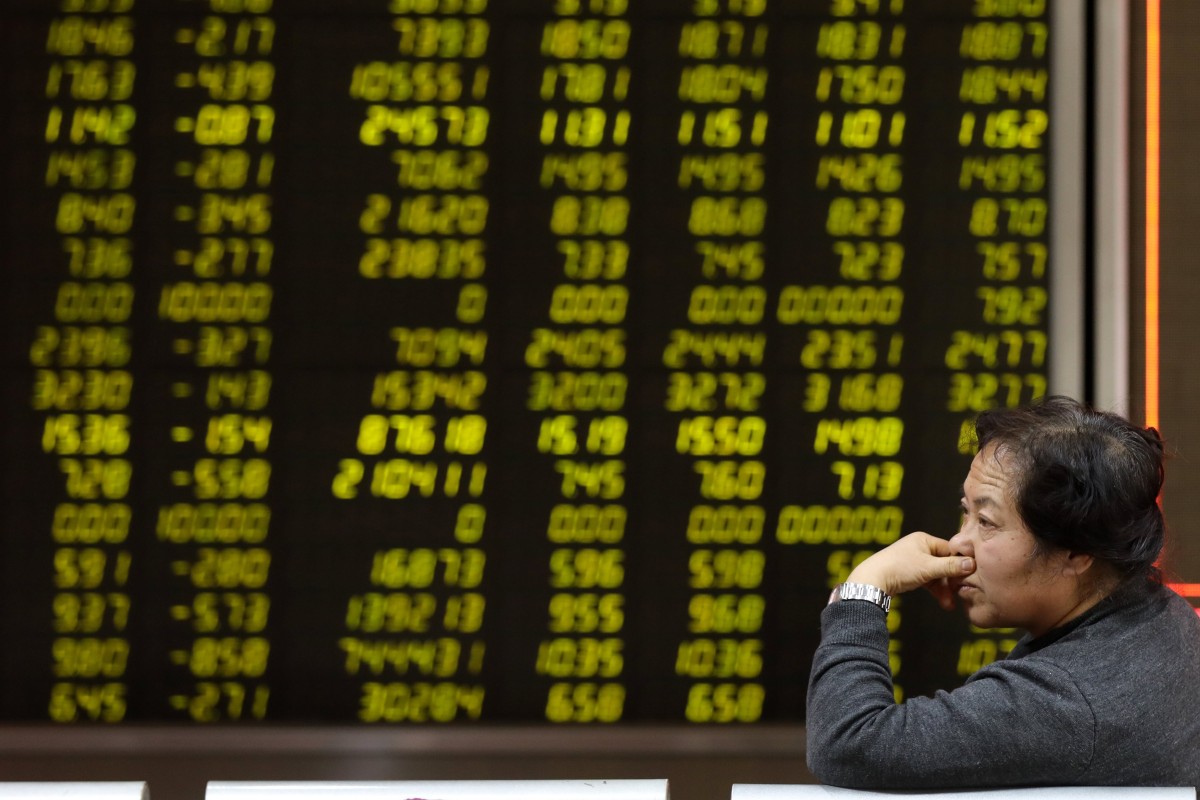
Beijing has learned their lesson about stock market intervention for now
The Chinese government seems to have realised the dangers of propping up the market so investors can no longer count on them to cover their backs

 The markets in China will not be saved by the government anymore.
The markets in China will not be saved by the government anymore.In late 2016, I wrote about the precipitous rise and stunning plunge of the Chinese stock markets over the previous year. This article will revisit my prognosis of that market crash, and contrast the government’s response then with its reaction to the global stock market jitters – most keenly felt in China – last month.
In the 12 months leading up to June 2016, the frenzied Chinese stock market was valued at US$6.5 trillion – a sum greater than the combined GDPs of Germany and Britain. Many sold property, left jobs and took out loans in a manic effort to join the invincible bull run. Then, within weeks, the stock market lost trillions of dollars in a dizzying slide that spooked investors worldwide.
After being in the doldrums for about five years, the Chinese stock market took off spectacularly in the summer of 2014. Share prices were rising at an unrelenting pace. Nascent companies with paltry profits staged wildly successful equity offerings. Worryingly, the rally showed no signs of slowing even though the economy was sluggish.
In the wake of the steep ascent, the central government should have introduced well-thought-out regulatory measures. I argued that these could have included limits on margin borrowing that would have reduced investors’ ability to trade on credit. Regrettably, the government instead sensed an opportunity to reduce the debt burden saddling state-owned enterprises, and sold inflated equity stakes in these companies.
The government should have put a dampener on the feverish rally; rather, it became the stock market’s biggest cheerleader. When the Shanghai Composite hit a new high of 4,000 in April 2015, state-run media proclaimed that it was “only the start of a bull market” and poured scorn on sceptics, asking “what’s a bubble?”
The wild party met its inevitable end around mid-June in 2015, as the Shanghai index began its sharp decline from above 5,000 to 3,700. The ruling party, concerned about its reputation, decided to stage a massive intervention. In conjunction with the nation’s largest stock brokers, the government launched a stock rescue fund with a war chest of half a trillion dollars – and a mandate to buy shares till the rout was stymied. They were dubbed the “national team”. The aim was not only to prop up the market by directly investing in it, but also to reassure stupefied investors that the government had their backs.
Although well-intentioned, I argued that the government’s move was misguided and very risky. Some pointed to the Hong Kong government’s intervention in 1998 to support Beijing. However, the two situations were different. In 1998, Hong Kong’s market and its currency came under a speculative attack by hedge funds betting that the city’s economy would be the next to fall in the Asian financial crisis. Then-chief executive Donald Tsang Yam-kuen and HKMA chief Joseph Yam had other ideas. On August 14, they put into action a bold plan to buy 11 per cent of the Hang Seng Index. The hedge funds were caught unawares and were forced to unwind their positions against the Hong Kong stock market.
Crucially, when the Hong Kong government stepped in, share prices had dropped to far below their fundamental value. On the other hand, China’s stock rescue fund moved into the market at a time when listed companies were still trading far in excess of their fundamental values.
I emphasised that supporting overvalued shares is an initiative that cannot have a happy ending.
But it seems the central government has heeded the warnings. Earlier this year, Chinese stock markets encountered yet another jolt. Fears of looming inflation in America hammered the buoyant market. Investors feared that the US Federal Reserve would raise interest rates to cool the economy and avoid heightened inflation. Such measures would make sky-high stock market valuations less appealing and potentially put the brakes on corporate expansion.
Markets suffered even more in China than in the United States, the source of the jitters, as worries were compounded by a deleveraging campaign on the mainland to rid the economy of “bad debts”. This deleveraging, the unwinding of mountains of debt, is vital for China’s long-term economic stability. Debt had reached untenable levels. However, this puts a damper on the kind of credit-fuelled economic growth that the Communist Party had supported to keep GDP numbers on target. And, in the short term, there are fears that the campaign, if not executed with precision, could destabilise the economy.
But back to the markets. There was a marked change in the government’s approach as stocks lost more than 10 per cent of their value. This time, the revered national team was nowhere to be seen.
Government mouthpieces and the stock exchange operator warned investors against panic selling, but there was no assurance from the government that prices would be supported, and the nation’s largest stock brokers did not step into the market. Of course, last month’s market plunge was nowhere near as serious as the one in 2015, and equity valuations are nowhere near as high, but it is heartening that the government is showing an unwillingness to leap in and save investors at the first sign of danger.
Two years ago, I wrote that although the Communist Party had taken laudable steps toward a more open and free market, much was left to be desired in its approach to financial regulation. Today, cautious optimism is warranted. Not only is the party finally cracking down on profligate indebtedness in the economy, it has also taken a well-advised step back from the stock market. Investors can no longer count on the government to have their backs. And that’s a good thing.
Edited by M. J. Premaratne
